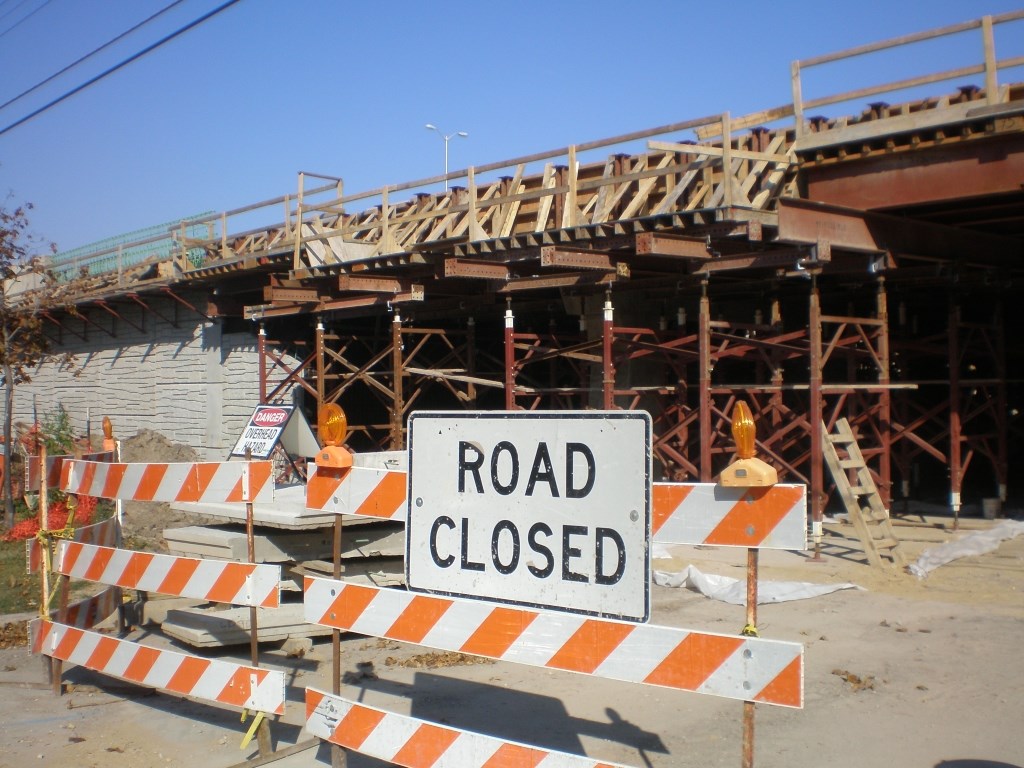To Fix Roads, Use Conservative Approach
Gas tax is user fee that works. Borrowing is an inefficient alternative.
Wisconsin boasts that it is “Open for Business,” yet it shows the world a transportation infrastructure that is deteriorated and congested. The latest state budget provides money to address the problem, but it is based on a serious error: borrowing money rather than taking the fiscally conservative step of raising the state’s gas tax rate. In the years to come, the public should understand the economic importance of this error and pressure their legislature to reverse it.
Politicians usually prove their “conservative” credentials by opposing all forms of taxation, arguing that such constraints on revenue are necessary to control the size of government. Perhaps that is the reason Gov. Scott Walker and the Republican-led legislature chose to borrow money rather than raise the gas tax rate. But their “no new taxes” posture violates another conservative principle: “people should pay for what they use.”
At present, our transportation budget suffers from the fact that drivers are using these public assets without paying the full costs that they impose on the system. When the individual users of a public good can be identified and the amount of their individual usage measured, it is far more efficient to rely on a user fee rather than going further into debt.
Use of debt finance instead of a user charge leads to inefficient shifting of costs and blunting of incentives. First, a portion of today’s transportation costs will be borne by future taxpayers and not by today’s drivers whose driving causes those costs. Second, those who rely on car-oriented transportation benefit at the expense of those who want to be less reliant on driving. For example, many Baby Boomers are choosing a more urban lifestyle after their kids have flown the nest; why should they be required to subsidize those who want to drive more?
Third, by reducing the cost to drivers below the full cost per mile that they impose on the system, the decision to use debt encourages more driving than would occur with a full-cost user charge. The reason for the increased costs is simple market economics: user charges impose incentives directly on people who are using the roads and can economize on their use, while the bond financing relies on general taxpayers whose obligation to pay is independent of road use. In turn, greater road use results in increased road maintenance and repair costs that future taxpayers will have to help cover when the bonds mature.
The state gas tax rate has not been raised since 2006. Through inflation and increased fuel efficiency, revenue from road users has fallen well below the amount now needed for a consistent and dependable program of modernization, maintenance and repair. With gas prices as low as they are today, this is a particularly good time to raise the gas tax rate. Going forward, the rate should be adjusted for inflation. Doing so will assure a reliable flow of funding from users, supporting a steady and dependable program to keep our roads in good repair. Because regular maintenance is cheaper than emergency repairs, the total cost to the system would be lower.
In addition, using the gas tax to pay for repair and maintenance of our transportation infrastructure allows Wisconsin to reserve its debt capacity for pro-growth capital investments rather than for road consumption. A competitive advantage awaits those states that get out ahead of the nation on fixing their roads. To put us back on a pro-growth economic path, one key step is to return to a conservative economic principle abandoned in the current budget: requiring people to pay for what they use.
William L. Holahan is emeritus professor and former chair of the Department of Economics at UW-Milwaukee. Charles O. Kroncke is retired dean of the College of Business at UWM. They are co-authors of “Economics for Voters.”
Op-Ed
-
Wisconsin Candidates Decry Money in Politics, Plan to Raise Tons of It
 Dec 15th, 2025 by Ruth Conniff
Dec 15th, 2025 by Ruth Conniff
-
Trump Left Contraceptives to Rot; Women Pay the Price
 Dec 8th, 2025 by Dr. Shefaali Sharma
Dec 8th, 2025 by Dr. Shefaali Sharma
-
Why the Common Council’s Amended Budget is Good Policy for Milwaukee
 Nov 20th, 2025 by Alds. Marina Dimitrijevic and Russell W. Stamper, II
Nov 20th, 2025 by Alds. Marina Dimitrijevic and Russell W. Stamper, II
Transportation
-
Congestion Pricing Cuts Air Pollution in New York City
 Dec 14th, 2025 by Jeff Wood
Dec 14th, 2025 by Jeff Wood
-
FTA Tells Milwaukee to Crack Down on Fare Evasion — Even Where Fares Don’t Exist
 Dec 12th, 2025 by Graham Kilmer
Dec 12th, 2025 by Graham Kilmer
-
Will GOGO’s Bus Service Ever Get Going?
 Dec 9th, 2025 by Jeramey Jannene
Dec 9th, 2025 by Jeramey Jannene




















